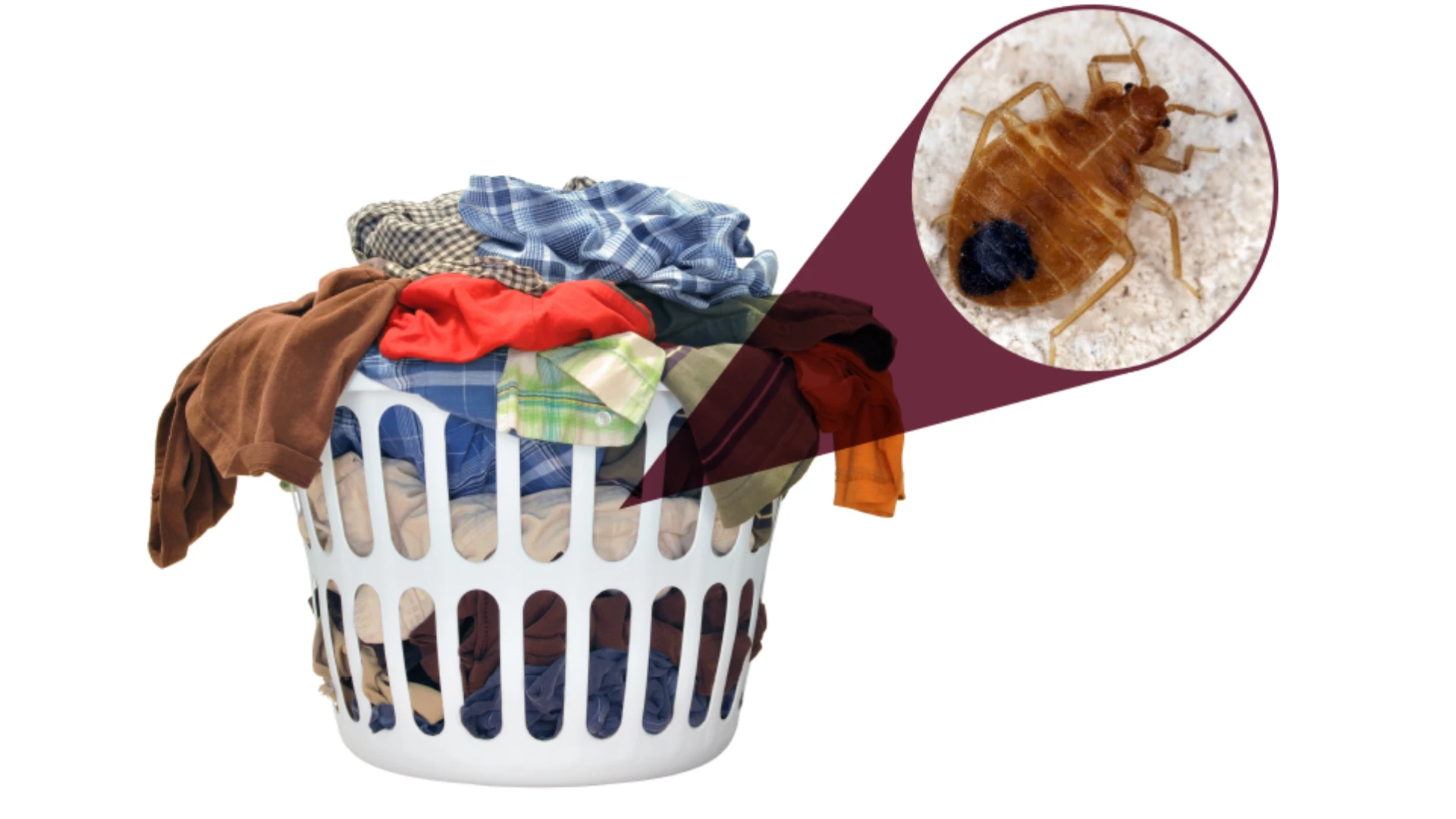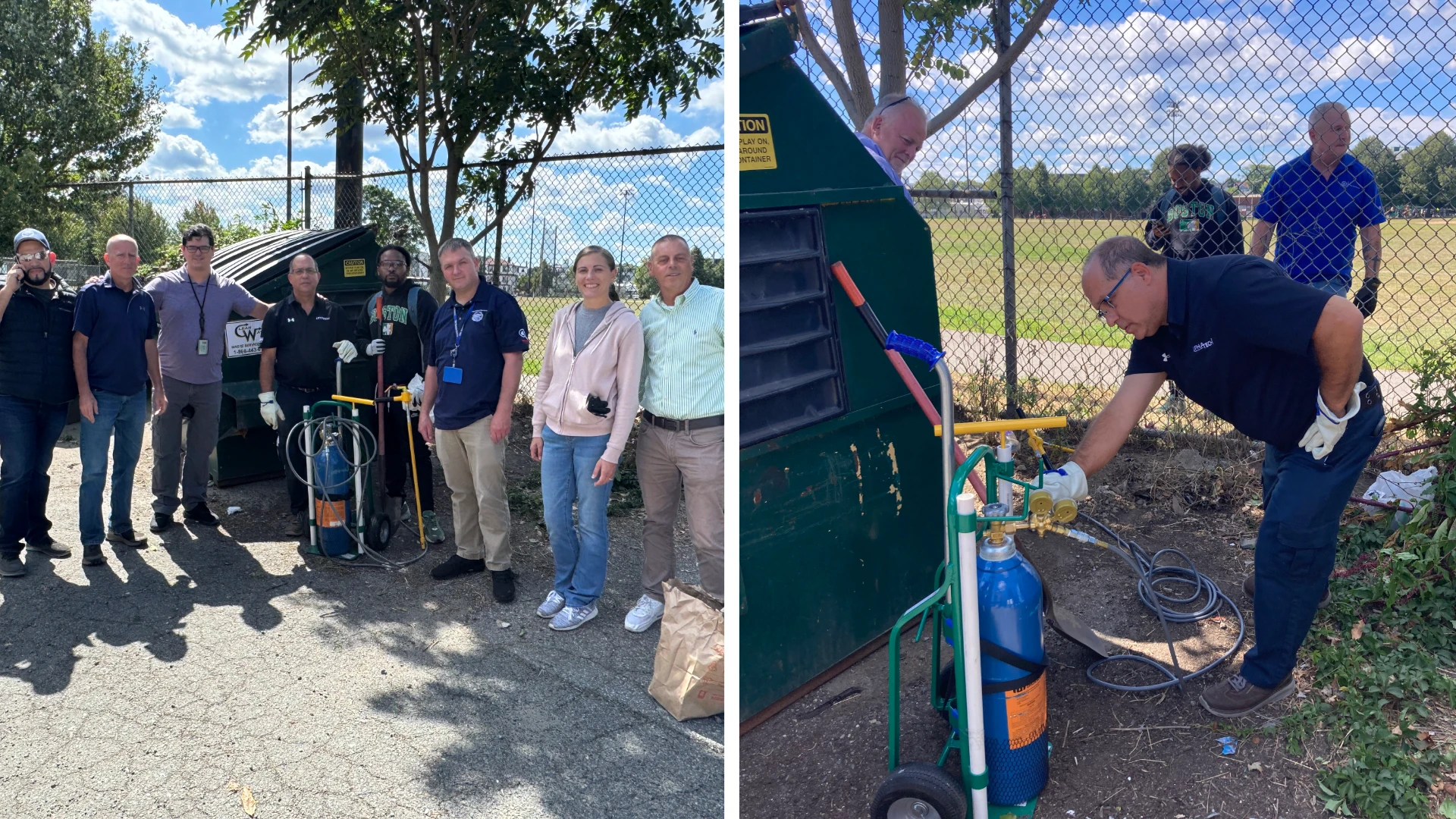Editor’s note: Suppliers/PMPs, if you have a mosquito-related news item or product you’d like to have highlighted in an upcoming issue, please send a press release and a high-resolution photo to jdorsch@gie.net.
Mosquito Joe Ranked in Entrepreneur’s Franchise 500
Mosquito Joe, a Neighborly company, recently ranked first overall for the fifth year in a row in the pest control category of Entrepreneur magazine’s Franchise 500. The Franchise 500 selected Mosquito Joe for its performance in areas including unit growth, financial strength and stability and brand power, the company said.
Mosquito Joe’s inclusion on the 2021 Franchise 500 follows a year of growth for the brand, with 47 agreements awarded and 33 new franchise locations opened in 2020, the company added.
“Placement in Entrepreneur’s annual Franchise 500 is such a highly sought-after honor in the franchise industry, and Mosquito Joe to not only be included in the ranking, but to also be named the top brand named to the list in the ‘pest control’ category, is an outstanding achievement,” said Lou Schager, president of Mosquito Joe. “Given all the obstacles we had to overcome in 2020 due to circumstances brought on by the pandemic, being recognized as a top franchise opportunity feels better than ever and sets us up for continued growth and success in the new year.”
Key factors that go into Entrepreneur’s evaluation include costs and fees, size and growth, support, brand strength, and financial strength and stability. Each franchise is given a cumulative score based on an analysis of more than 150 data points, and the 500 franchises with the highest cumulative scores become the Franchise 500 in ranking order.
“2020 was a challenging year for everyone, but it was also a year of unusual opportunity,” said Jason Feifer, Entrepreneur editor-in-chief. “Franchises were able to be nimble and innovative, serving the needs of franchisees and customers in ways that will resonate for many years to come. We believe that, when we eventually look back on this time, we’ll see it as a moment when many brands defined themselves for the future.”
To learn more about Mosquito Joe, visit www.mosquitojoe.com.
Dutch Invention Results in 47 percent Less Malaria
With a simple ventilation tube known as EaveTubes, the Dutch inventor Anne Osinga of In2Care was able to reduce malaria by 47 percent in the Ivory Coast, according to research published recently in the medical journal The Lancet. The research was supported by the Bill & Melinda Gates Foundation.
The EaveTube is a ventilation tube in which a gauze disk with insecticide powder is installed under the eaves of a house. Mosquitoes fly into homes through the EaveTubes, but they do not get very far, because in the tube the mosquitoes come into contact with the powdered gauze and die. This includes insecticide-resistant mosquitoes, the company says.
“In comparable studies, mosquito nets only reduce malaria by 12 percent, also because they are often used for other purposes, such as making a chicken coop or a football goal. EaveTubes offer four times better protection,” said Osinga. “Plus, a disk with insecticides only costs a dime. This allows us to protect five times more homes than current control methods such as spraying insecticides on the walls.” Also, he added, the product is better for people’s health since 100 times less insecticide is used.
The study was conducted in 2016-19. A total of 30,000 EaveTubes were placed in 3,000 houses in the Ivory Coast in West Africa. In villages where EaveTubes were installed, in at least 70 percent of the houses, 47 percent less malaria was found in children compared to villages without EaveTubes. Worldwide more than 400,000 people died from malaria in 2019, according to the World Health Organization.
The study was conducted in collaboration with Pennsylvania State University, Liverpool School of Tropical Medicine, London School of Hygiene & Tropical Medicine and Institut Pierre Richet.
Learn more at www.in2care.org.


Mosquito Squad: First California Location Opened
Mosquito Squad recently announced its debut in California with a new location in Roseville, Calif. Owned and operated by first-time franchisees, Rusty and Kimberly Cowan, the location will open this spring. The Roseville location is the first in California and the company says additional locations will open in 2021. Mosquito Squad plans to open additional California locations in Pasadena and Los Angeles.
“Kimberly and I are overjoyed to bring Mosquito Squad to California. We were in search for a business that serves the community, keeps locals safe and allows an opportunity to conduct philanthropic initiatives. The leadership team, corporate and franchisees have been excellent resources that contribute to our success and continue to support us as we work to open our first location,” said Rusty Cowan. “Mosquito control is near and dear to me as I overcame West Nile, meningitis and encephalitis. After being infected with West Nile virus in 2018, it sparked my desire to protect others from suffering like I did, especially in the California market where West Nile virus is common.”
The husband-and-wife duo have been actively involved in the community to speak out against mosquito-borne diseases. In addition to the Roseville location, the Cowans are anticipating opening additional territories next year. Prior to joining Mosquito Squad, Rusty served time in the U.S. Army, and owned a large real estate franchise that recruits talent, manages associates and conducts training. His wife, Kimberly, previously worked in nursing where she enjoyed teaching patients about their health and wellness.
“We are so excited to expand in the West Coast market and watch the brand continue to grow,” said Tom Swift, COO of Mosquito Squad. “Mosquito Squad has been able to have such successful growth due to franchisees like Rusty and Kimberly. Their support and dedication reassures us that the first California location is in great hands.”
For more information, visit www.mosquitosquad.com.
Study Shows 34 percent Reduction in Dengue, Zika with New Product
Researchers from the University of Notre Dame led a recent study that demonstrated that Mosquito Shield, a SC Johnson-designed spatial repellent product, reduces Aedes-borne viruses infection rates by an estimated 34 percent. The data, collected from a Peru-based study, represents the second clinical trial of a five-year global program to investigate the impact of spatial repellents in reducing mosquito-borne disease. The Peru clinical trial was led by the University of Notre Dame in cooperation with the University of California, Davis and U.S. Naval Medical Research Unit Six.
The spatial repellent product was designed to be easy to use with minimal handling, which may help to increase compliance, the company said. It can be hung in semi-enclosed and enclosed spaces to continuously repel mosquitoes. Transfluthrin, the active ingredient in Mosquito Shield, passively emanates using natural airflow to protect people from mosquitoes in a specific area. This active is registered with the U.S. Environmental Protection Agency and is used globally in pest control products.
“As part of our commitment to helping address some of the world’s most pressing public health threats, SC Johnson is proud to support disease prevention efforts and create opportunities for a better quality of life for underserved populations,” said Fisk Johnson, Ph.D., chairman and CEO of SC Johnson. “Life-threatening diseases, like dengue and Zika, are preventable, yet billions of people around the world lack access to personal protection methods. We are working to prove the effectiveness of this spatial repellent so we can get it into public health systems and save lives.”
Each year, millions of people contract mosquito-borne illnesses, like dengue, Zika and malaria, which can cause more than a half million deaths globally, particularly in developing countries. While progress has been made in reducing mortality rates, the World Health Organization (WHO) has indicated that dengue cases have risen significantly across Central and South America in recent years. Additionally, while Zika cases have declined globally, it remains a challenging illness for vulnerable communities in endemic areas.
Spatial repellents offer a new opportunity for public health organizations to bridge the coverage gap in mosquito bite prevention. The University of Notre Dame’s epidemiological data from the second clinical trial shows encouraging results. In addition to reducing Aedes-borne viruses infection rates by an estimated 34 percent, researchers found that SC Johnson’s first-generation spatial repellent technology significantly reduced the number of mosquitoes found indoors by approximately 29 percent.
SC Johnson provided industry and product expertise, manufacturing, and market access, particularly in the development and production of the Mosquito Shield products used in the University of Notre Dame clinical studies.
An earlier version of the Mosquito Shield product was used in large-scale, randomized, controlled clinical trials funded by The Bill and Melinda Gates Foundation, including the Peru study.
The full WHO Vector Control Advisory Group report can be found here.

Explore the May 2021 Issue
Check out more from this issue and find your next story to read.
Latest from Pest Control Technology
- Rentokil Terminix Expanded in Key Markets with 2024 Acquisitions
- In Memoriam: Joe Cavender
- Certus Acquires Green Wave Pest Solutions
- Liphatech Adds Alex Blahnik to Technical Team
- Do the Right Sting: Stinging Insect Identification, Management, and Safety
- VAGA's 8th Annual Veterans Thanksgiving Appreciation Dinner
- Clark's Blair Smith on the Response to Increased Dengue Fever Cases in Southern California
- WSDA, USDA Announce Eradication of Northern Giant Hornet from U.S.





